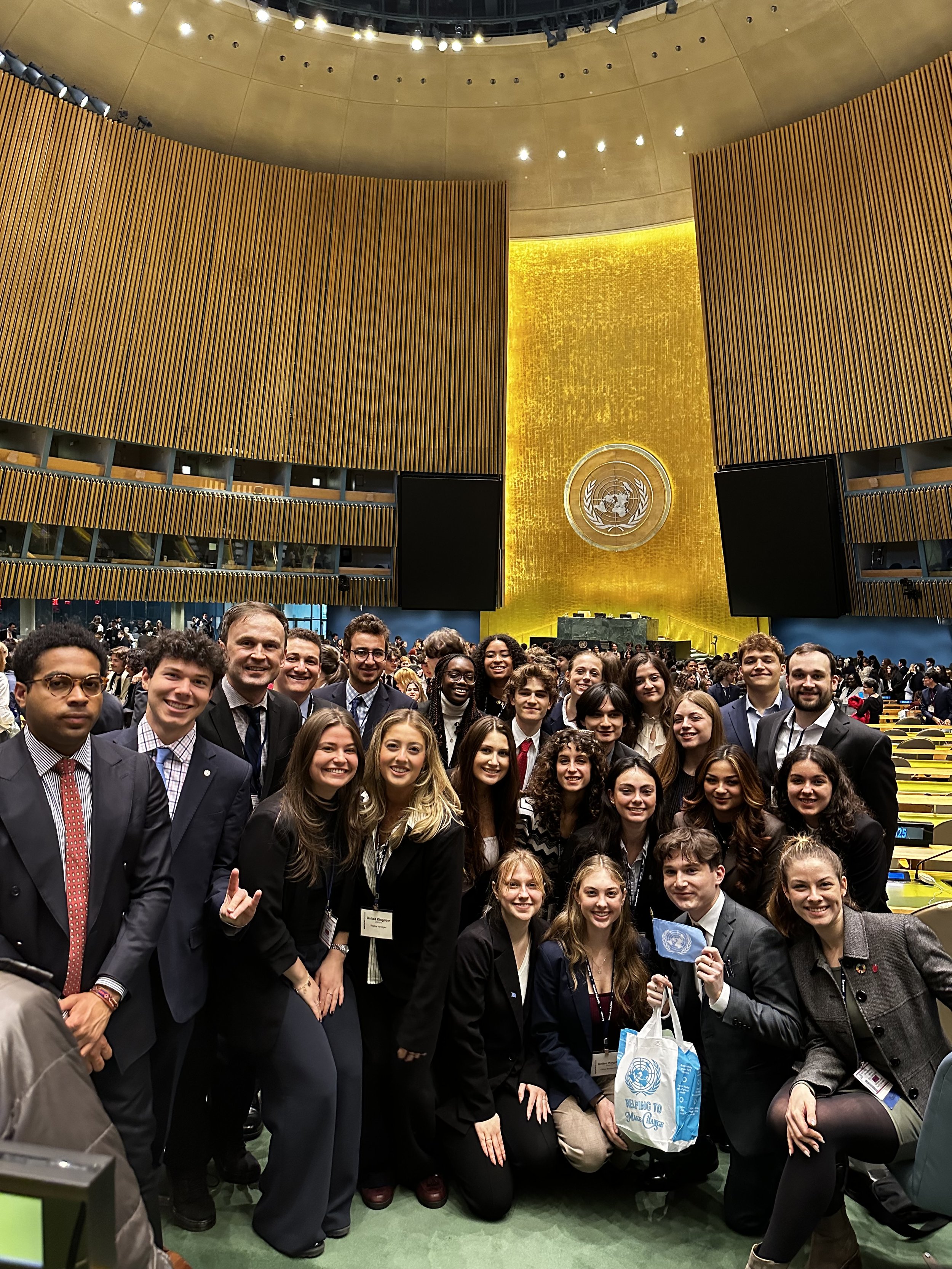Marist University Brings Home the Outstanding Delegation Award for the First Time in the 2025 National Model UN Conference
Marist University students at this year's National Model UN Conference. Photo courtesy of Ethan Solury '26.
As in previous years, Marist University’s Model United Nations (UN) club, along with students from the Model UN course, attended the annual National Model UN Conference in New York City. However, this year’s conference concluded with a remarkable feat: Marist’s first-ever Outstanding Delegation Award.
“We've always won the second-place award, but this year, we finally broke through the ceiling to win the first cohort,” said Ethan Solury ‘26.
The conference hosted 114 schools this year, resulting in a total of over 3,000 students, all of whom have been preparing for this event since the beginning of the semester; this five-day conference is no easy feat.
The 10-hour days consist of students participating in conversations to become fully immersed in the country’s beliefs. This year, Marist represented the United Kingdom through various committees, each comprised of two students who represented topics aligned with the UK’s views.
This year, the team of 28 students who made the trip to NYC was led by Head Delegates Justice Seymour ‘25, the president of the Model UN club, and Solury, the selected member from the Model UN course.
“To win [the award], you must be within the top 20% of all 114 delegations that participated, which is really impressive, and that's an award that Marist has never won before,” said Solury. “But this year, winning that plus two position papers is a big deal.”
The position paper, a key aspect of the committee’s role, discusses the country's stance on the two topics to be addressed by the committee at the conference.
This year, Marist also brought home two position paper awards: one written by Sean Garabedian ‘28 and Jonathan Fiola ‘25 from the Peace Building Commission, and another by Natalia Fernandez ‘28 and Catherine Catania ‘28 from General Assembly Three.
“Luckily enough, of the two committees, one that won the award was part of the class, and the other was part of the club,” noted Soulry. “So it's kind of cool that they were split.”
While an opportunity to advance communication skills and global studies knowledge, the Model UN conference also poses a unique dilemma. Participants must set aside their own opinions, often delivering information that they don’t necessarily believe, but which aligns with their country’s beliefs.
“It's a little difficult sometimes, because you have to put aside your beliefs and really immerse yourself in more of a diplomatic stance,” Solury explained. “It gets frustrating, because you want to say something, and then you realize, you can't say that because that’s your own opinion.”
According to the head delegates, this year’s tasks were easier, as the UK closely aligns with the U.S., and as a larger country, Marist students were approached by many other “countries” asking to form alliances. While dedicated to the nature of the conference, this also offered students a unique opportunity to connect with people from around the world.
“It's a great social scene because you meet people from all around the world, and the connections you make are valuable,” noted Seymour. “Now I have friends in Switzerland and Germany whom I met through this experience.”
Additionally, Solury’s perspective of Model UN is unique, having just returned from a semester working for the State Department in Washington, D.C.
“Actually working with these countries and seeing how it's done in DC was really, for lack of a better word, cool,” Solury said. “It's not just a small conference for five days; this is actually how operations run. Returning to the conference with that perspective in mind is eye-opening and refreshing.”
Marist’s Model UN club plans to return to the conference next year, hoping to maintain its high status among the delegations.
